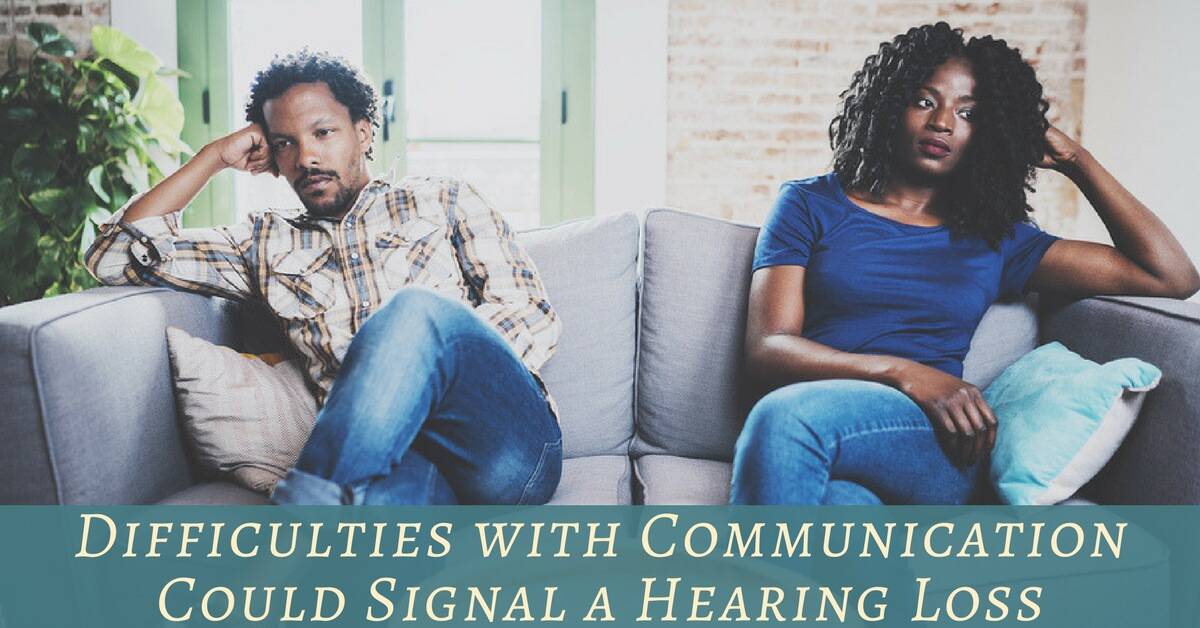
Have you been struggling to communicate? Do you have difficulty following conversations in a restaurant, or during noisy family dinners? Struggling to hear in conversations, or in places with a lot of background noise could signal hearing loss, even if your latest hearing assessment didn’t seem to indicate that there was anything wrong. You may have hidden hearing loss, hearing loss that’s in your brain, not in your ears.
Hidden Hearing Loss
If you’ve experienced difficulties in communicating, but you passed your hearing test, you’re likely suffering from what experts are calling hidden hearing loss. This kind of hearing loss doesn’t show up in the quiet audiologist’s office where you can hear easily, or on standard hearing tests. But when you’re out for dinner with friends, you might feel like you can’t understand anything at all.
Having problems communicating is more than just an annoyance, and can lead to some major consequences. When you can’t follow conversations in places with lots of background noise, you’re more likely to isolate yourself and stay home. Your social life will take a hit, and you’ll be more likely to suffer from stress, anxiety, and even depression.
What Causes Hidden Hearing Loss
New research published in Nature Communications explains one of the possible causes of hidden hearing loss. Dr. Gabriel Corfas from the University of Michigan, along with Guoqiang Wan from Nanjing University in China have been researching hidden hearing loss in mice, and have made some interesting discoveries.
Hidden hearing loss has nothing to do with your ears, it’s all in the brain. In hidden hearing loss, the Schwann cells that produce myelin, a substance that insulates the neural pathway between the ear and the brain, are damaged, so the neural pathway isn’t insulated, and signals from the ear have a harder time reaching the brain. Even after the Schwann cells regenerate and start producing myelin again, hidden hearing loss is permanent.
Schwann cells can be damaged in a number of ways, and young people are particularly at risk of hidden hearing loss due to exposure to extremely loud sounds. "Exposure to noise is increasing in our society, and children are exposing themselves to high levels of noise very early in life," Corfas says. "It's clear that being exposed to high levels of sound might contribute to increases in hidden hearing loss."
Why is Hidden Hearing Loss So Hard to Find?
So, what makes hidden hearing loss so hard to diagnose? It all comes down to the difference between damage in the ear and damage in the brain. When the cells in the inner ear have been damaged, from age related hearing loss for example, its hard to hear certain frequencies of sound, regardless of the level of background noise or quiet. When the damage is in the brain, however, hearing in a quiet place can be easy. Since there are only a few sounds to listen to, your brain has enough processing power to hear everything clearly. It’s only in a noisy listening environment that you’ll notice hidden hearing loss, since your brain can’t keep up with all the noise, and isn’t able to filter through the sounds to focus on what you’re trying to hear.
How to Test for Hidden Hearing Loss
The first step in addressing hidden hearing loss in your life is to test your hearing. Hidden hearing loss isn’t like traditional hearing loss, so a standard hearing test may not reveal the hearing loss, making hidden hearing loss underdiagnosed and untreated. A new hearing test has been developed, that tests your binaural, or across-ear, hearing abilities. If you’re having difficulty with binaural processing, or identifying which side the sounds are coming from, you likely have hidden hearing loss.
Treating Hidden Hearing Loss
Researchers are looking for solutions to hidden hearing loss, such as restoring myelin cells, but so far, no medical treatments exist. If you have hidden hearing loss, the best thing you can do is get a hearing device that will help you hear in noise and remove your communication difficulties. At My Hearing Centers, we have the perfect hearing aid that will work with your ears to make up for any gaps in your hearing, from an evening out with friends to a quiet evening at home.
